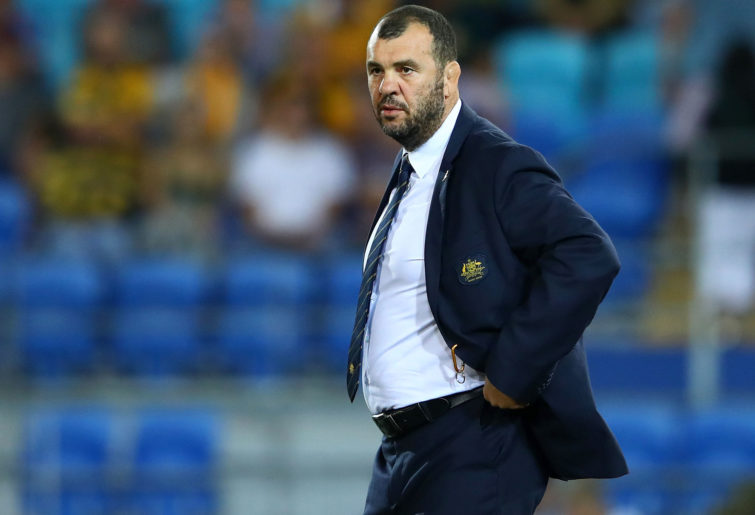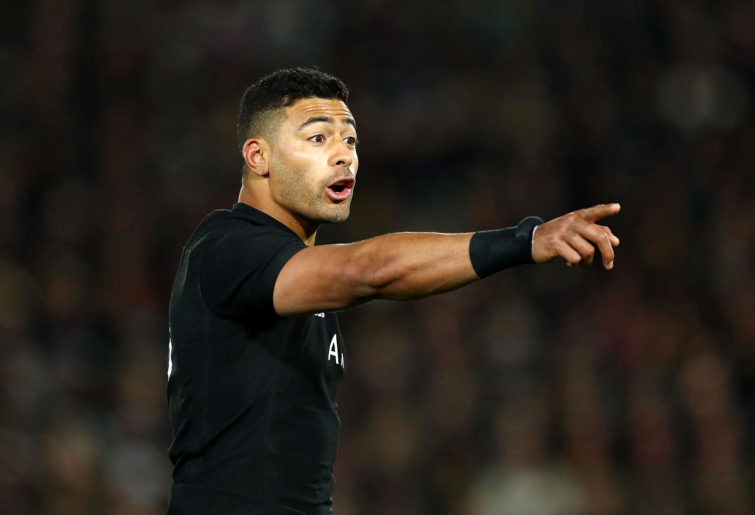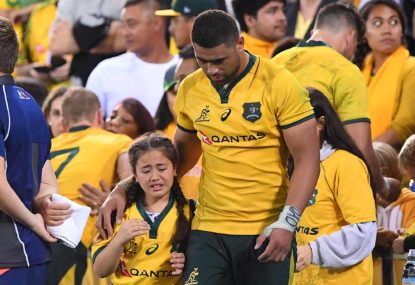A few days ago, I was cleaning out my books in readiness for a garage sale, because we are moving and downsizing to live in an apartment.
One or both of my knees are shot and I need at least one, if not two, replacements. Stairs are about to be a thing of the past, at least for a while.
The point of that is you have to watch your wife like a hawk, or she’ll innocently throw out all your sacred rugby, cricket, golf and other prized books.
I came across Simon Poidevin’s book, For Love, Not Money – powerful, that! It neatly encapsulates what is different about today’s Wallabies from those of only just 20-30 years ago.
I immediately knew this is the current theme that is exercising our thoughts.
How to make Australian Rugby great again and climb up the rankings.
The problem now is climbing up the rankings will be like climbing a greasy pole – it ain’t going to be easy.
We are not going to sweep all before us, we are down at no.7 and that may be where we belong, for a while – heaven forbid!

These are difficult times for Wallabies coach Michael Cheika. (Photo by Cameron Spencer/Getty Images)
I’m a bit lazy (not an esteemed journo, like Lordy or Brett) so I’m not going to do the research that this treatise deserves.
Instead, I’m just going to guess that in a typical Wallabies team of the 1970’s or 80’s you would have had a mix of; doctors or medical students, lawyers or law students, engineers, architects, labourers, public servants, a few tradies or apprentices, a policeman or two, a butcher, a baker and a candlestick maker!
Whatever, but most would have had a career pathway ahead of them, outside of Rugby.
These days it would be professional rugby player times 22, withh one or two doing a part time University degree, and at what universities?
Now I’m not being a snob, but how many Wallabies, or Brumbies, or Waratahs, or Rebels or Reds or Force players would be attending a mainstream university undertaking a mainstream degree? A small percentage at best.
The advent of professionalism probably spelt the death knell for most blokes who wanted to follow a profession or calling, outside of rugby.
Remember Steve Merrick? Her played one or two Tests and then decided the significant investment in his coal truck was more of a priority than playing professional rugby – which was just in its infancy.
He was the first of the professional era to publicly make that choice, but no doubt many promising rugby careers never got off the ground to start with in the amateur days because blokes knew they were making the right decision for them and their families not to pursue Rugby.
These days, the powerhouse schools of Australian rugby are offering rugby scholarships and all that, but are they really sending those lads on to meaningful tertiary education?
I really don’t know and maybe someone in the schools organisation can enlighten, but I suspect those kids are just being channelled into the system, the gyms, the training paddocks and the playing fields and not really being prepared for the lives that their predecessors experienced. They’d have high-priced managers, looking at their best options, such whether they stay with rugby or go to league, or whether they stay in Australia or play in Europe or Japan.
Talk about pathways!
Professional rugby is also a calling, and you can only follow one or the other. How many professionals, or students, do you see in rugby these days?
Maybe one or two, a medical student, or a law student here or there. Yes, I know the franchises encourage their guys to get degrees, but do they really? Do they really care?
So what is my point?
I stopped coaching adults in the early 2000’s – a couple of years with littlies, but that was it for me.
Back in my day, we took a team of blokes, mostly private or at least good schools, and they were pretty much capable of thinking on their feet.
We made them do drills at training and, while they complained, if we explained why they were doing them, they bought into it, because by and large they were above-average intelligent individuals.
The standard of the rugby was high, even in the lower grades, because, as a coach, you could expect your team to think their way through a game, and you usually had five or six natural leaders on the paddock.
So, there has been a fair gap in years since I last coached and, these days, I am just an innocent bystander like everyone else. I’m like all of us Roarers who are asking what has happened, what has gone wrong, why have our standards dipped and why is there not a coherent coaching system?
Back in the 70’s when we were in crisis, the Australian Rugby Union stepped up and appointed the esteemed Dick Marks to head the National Coaching Panel and we got a system in place.
Who remembers that book with the green and gold stripes on the front cover?
The exercise of cleaning out my bookcase last weekend resulted in triumph because I found my copy, heavily thumbed through and a bit dog-eared (thought I had lost it) – and I will never part with it.
It reminds me that there was a time when Australian Rugby was in crisis and great people stepped up and did something about it – I really hope it can happen again.
So, please don’t ask me if you can borrow it. Take my ladder, my power saw, my kids, but not the book!
Let’s pull the threads of this post together.
We are now in a situation where we have lovely blokes, I’m sure, playing for our country, and lovely blokes, I’m sure doing their best to coach them, but are they the best thinkers in our game, like those professionals of old?
Are they really capable of going out onto the training paddock and analysing?
Are they really people who can truly think on their feet? Even allowing for the fact that the game has become much faster and more physical?
Well, you know, it has become all of those things for all the other teams, too, but we don’t seem to be handling it that well. The sheer lack of basic catch-pass skills in the Wallabies would suggest we are regressing, not progressing.
What is Mick Byrne doing?
The fact he did great things with the All Blacks, but has not been able to replicate it with the Wallabies speaks volumes – but not necessarily about Mick Byrne – who I’m sure is doing his best, but about the people that he has to work with, and the sheer dumbing down of our Rugby system.
So the question is not “What is Mick Byrne doing?” but is; “what are the powers that be doing to give him the right tools, and how can we work within the limitations of not having lots of intellectuals coming through and going on with their careers?”
Why could he be a success with the All Blacks, yet not bring it to the Wallabies?
Let’s think about the group of people that he and the other coaches have to work with.
Are they people who can play mind games with their opposition? If not, why not?
As an aside – people are trying to rid cricket of sledging – bad idea, because that is where games are often turned or influenced. Rugby should be no different.
A lot of the terrain you negotiate in a game is the six inches between your ears, inside your head, and our guys should become experts at getting inside their opponents’ heads.
Very satisfying when you pull it off and leaves a player with the confidence to take it into the next game, so never underestimate that edge.
If not, what are the All Blacks doing that is so different? That should answer itself.
If not, shouldn’t we be worried that the rest of the world has it figured out?
Look at USA Rugby, they get their funding through the College system. Those guys get real degrees – not part time ones that fit in around their playing and training commitments.
Their nurseries and their academies are based around those types of organisations, while Russia is the same and many other countries.
What is Rugby Australia doing to analyse these sorts of trends, let alone adopt them or come up with better ideas?
Have we worked out how to engender a killer instinct through sheer competition? Or are we still stuck in the old private school sense of entitlement ethos, that has well and truly passed us by?
Are the alicadoos that are running our game properly qualified, or just there because they’ve got their snouts in the trough?
Let’s face it, we’d all like to enjoy the privileged aura of being an ARU board member, but great aura demands a correspondingly great level of commitment to the achievement of results.
Have they not yet worked out that the definition of insanity is doing the same thing, the same way, every day, but always expecting a different result?
A vast majority of our players these days are Pacific Islanders, whose families come here for a better life, and bloody good on them, but are they also products of the schools system?
Natural ability is a wonderful thing, but are they people who can think their way through a game? If not, why aren’t we doing more to support them?
Not just those guys, but all of those kids from lower and middle socio-economic backgrounds. Are they getting care and attention that maybe the lucky private school kids were handed on a plate, that was just taken for granted, as a right or an entitlement?
I know that some people will pillory me for those comments, but I think I am making a modicum of sense, here. Do you get what I am driving at?
In other words, have we yet thought about the abiity to think, to reason, to analyse and most importantly, to adapt? If we are bringing players through who don’t have those important life skills, how can we help them to achieve them?
The All Blacks seem to have mastered it, even “bottled” it – why haven’t we figured it out?

Richie Mo’unga of the All Blacks. (Photo by Anthony Au-Yeung/Getty Images)
I guess we haven’t yet made the transition from our amateur days to the professional. Other countries like New Zealand, England, South Africa, Argentina and France did not have to go through that situation as we did.
When Rugby became professional, we were forced down into that arena where we were suddenly in competition with three other professional footy codes, not up there in the haughty moral high ground that we always occupied, sailing with a following wind and home free!
The powerhouses of England and South Africa benefitted from Rugby going professional – but we were suddenly catapulted into serious competition for exposure.
We pinched a few league-ies in the early days, but my guess is the talent drain from rugby to rugby league, amongst the talented schoolboys, has been mostly one-way traffic and not in our favour.
We never made that break out move we all thought would happen when rugby finally rid itself of the sham of professionalism and became properly professional.
So, if you are serious about being a rugby international, suddenly, your private school upbringing isn’t important anymore and the physical and time demands of professional sport mean you have to choose – and you can’t just put your pre-determined profession on hold for a few years.
Suddenly, if you decide you are going to become a professional rugby athlete, you have to clear a path through to about age 36, or give it away, and then it may be too late to pursue your second career as hard as you would have when you were a young turk.
On the basis of all that, is it any surprise that our beautiful game has suffered from “brain drain”? Is it any surprise that we are going backwards in terms of skills and having players who can actually think on their feet.
In a world where we can liken our game to chess, are we populating it with checkers players, who are mentally incapable of thinking more than one move ahead?
There are lots of analogies and cliches here but, seriously, all of these considerations, and possibly many more are the things that should be occupying our thoughts as we try to sort out the current crisis in Australian Rugby.
Believe me, if you don’t think there is a crisis, then you are one of the culprits, or you have just lost interest – and for that you couldn’t be blamed, as many others have too.
Let’s get it all back into a pattern of sanity. Otherwise, we are condemned to being a second tier nation for a while to come.
Over to you, fellow Roarers.































































































